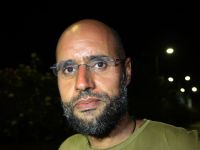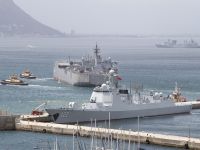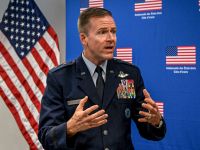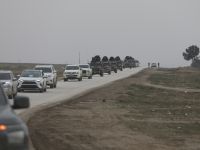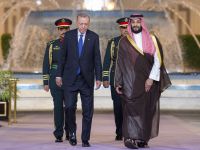Russia said Friday that the Syrian truce agreed by world powers in Munich does not cover "terrorists" and thus the Russian air force will continue its military campaign in support of President Bashar al-Assad.
"The truce does not apply to terrorists, and that is stated in today's document," Russian Foreign Minister Sergei Lavrov said, according to state news agency TASS. "The military operation against them will be continued."
Lavrov was speaking in Munich after diplomats of the International Syria Support Group - including those of the United States, Russia, Iran and Saudi Arabia - reached agreement after six hours of talks in a hotel in the Bavarian capital.
US Secretary of State John Kerry said the truce would not apply to the militant groups Islamic State and the al-Nusra Front, and that it amounted to a "pause" in fighting to allow the details of a full ceasefire to be hammered out.
It was not immediately clear how the exclusion of al-Nusra would work in practice. On many of Syria's most active front lines, the group fights alongside other rebel militias.
Russian airstrikes against the al-Nusra Front continued on Friday, killing at least 16 civilians in the area north of the city Homs, the Syrian Observatory for Human Rights said.
The conferees in Munich also agreed to expedite the delivery of humanitarian aid to besieged towns in Syria and reiterated their commitment to a political transition in Damascus to bring about long-term peace.
Russia began in September a bombing campaign against insurgents in Syria in support of al-Assad, in what it says is an effort to restore stability in the country.
With Russian help, al-Assad's military has made significant gains against rebel groups in recent weeks.
The Syrian opposition on Friday expressed scepticism about the truce. "We want deeds, not just [words]," said Salim al-Muslat, a spokesman for Syria's main opposition group, the Higher Negotiating Committee. "We are fed up with promises."
There has been no official comment yet in Damascus on the Munich agreement, which made no immediate impact on Syria's battlefields.
The Syrian army, backed by Russian airstrikes, pressed ahead Friday with a major attack in the northern province of Aleppo that has displaced tens of thousands of civilians since the offensive started on February 1.
Saudi-Arabia's Foreign Minister Adel al-Jubeir, attending the Munich conference on Friday, called for the resignation of Syrian leader Assad, whom he criticized as an "effective magnet for extremists and terrorists."
"This regime and its Russian allies are determined to destroy all of northern Aleppo before they implement any ceasefire on the ground," said Abu Terki, a rebel commander in the Aleppo town of Tel Rifaat, which has been the target of a Russian-backed regime attack since last week.
Inside the rebel-held city of Aleppo, there was little hope of a lasting truce.
"This is a lie. [If they] really wanted a ceasefire, they would do it immediately and not wait for meetings and conferences," said Abu Mahmoud, a resident of a rebel-held area in the province located near Turkish border.
Turkey, a staunch critic of al-Assad, called the Munich deal an "important step."
"What is important now is embracing this opportunity, stopping the airstrikes, ceasing targeting civilians and providing humanitarian access," Turkish Foreign Minister Mevlut Cavusoglu said in a tweet.
One of two new task forces set up by the International Syria Support Group during the talks to oversee the delivery of humanitarian aid was set to meet in Geneva later on Friday.
UN spokesman Ahmad Fawzi said the meeting would be "a good time to test the will" of the group, and suggested it could play a role in getting the Syrian regime and opposition to resume peace talks scheduled for February 25.
Syria's conflict started with peaceful anti-government protests in March 2011. It developed into a full-blown war that has claimed the lives of more than 250,000 and displaced over 11 million, according to UN estimates.
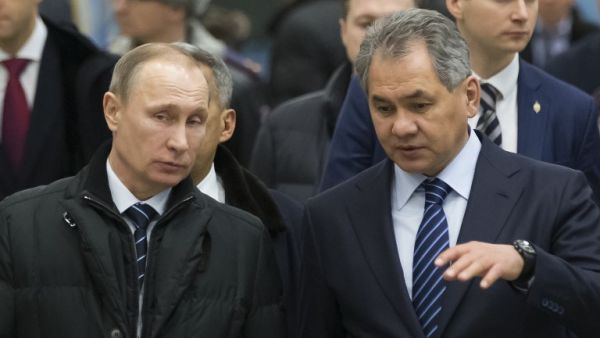
Russian President Vladimir Putin listens to Defence Minister Sergei Shoigu about 450 miles east of Moscow, on February 12, 2016. (AFP/Alexander Zemlianichenko)



